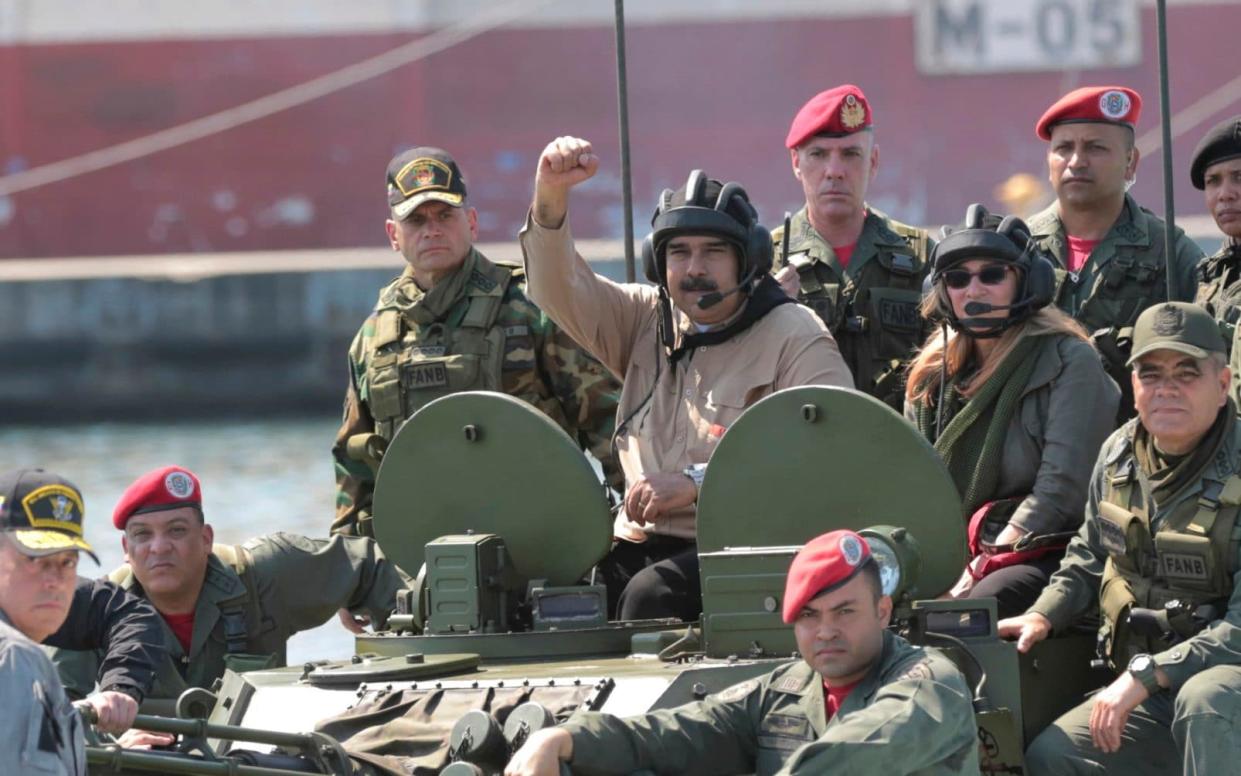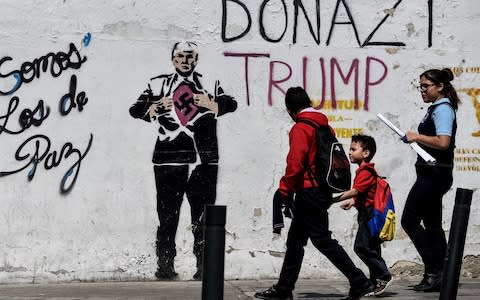Venezuela set for another round of protests as Maduro rules out fresh elections

Venezuela's President Nicolas Maduro said he was prepared to hold negotiations with the US-backed opposition but ruled out early presidential elections as Caracas braced itself for fresh street protests.
"I am ready to sit down at the negotiating table with the opposition so that we could talk for the good of Venezuela," Maduro told the Russian state news agency in an interview in Caracas.
Last week the oil-rich but economically devastated Latin American country was plunged into uncertainty when the US-backed opposition leader Juan Guaido proclaimed himself "acting president".
The United States, a dozen Latin American countries and Canada have recognised Guaido as interim president, while China and Russia - Venezuela's two main creditors - have urged non-interference.
In the interview with RIA Novosti, Maduro also said he would support early parliamentary elections.
"It would be very good to conduct parliamentary elections at an earlier stage, it would be a good form of political discussion," Maduro said.
At the same time he dismissed the possibility of holding a new presidential poll any time soon.
"Presidential elections in Venezuela have taken place, and if imperialists want new elections let them wait until 2025," he said in an apparent reference to Washington.
Guaido called for more protests on Wednesday and a mass march on the weekend, in a bid to keep up pressure on Maduro in the streets. Wednesday's action would not be a major march, but a series of small concentrations, Guaido said.
The UN human rights office said the protests had so far led to the deaths of more than 40 people.
Maduro has been in charge since 2013 but his re-election in May was branded illegitimate by the European Union, United States and Organization of American States.

The embattled leader also implied he was firmly in charge of the army whose support is crucial.
"I am carrying out my duties as commander-in-chief according to the Constitution consolidating the national Bolivarian armed forces," he said. "And the Bolivarian armed forces are demonstrating a lesson in ethics, loyalty and discipline."
Maduro also claimed that US President Donald Trump had ordered the government of Colombia to assassinate him.
"If something happens to me one day then Donald Trump and Colombian President Ivan Duque will be responsible for everything that is happening to me," he said, adding however that he was in good hands.
"At the same time, I am protected. We have a good system of defence in place and moreover, we have more significant protection - this is protection from God who will give me a long life," Maduro added.
Russia has denounced the opposition's "usurpation of power", calling Maduro the crisis-hit country's legitimate leader.
Russia and Venezuela have a long history of ties and Maduro's predecessor Hugo Chavez, known for his tirades against the United States, was a welcome guest at the Kremlin.

